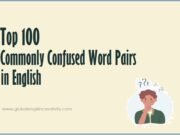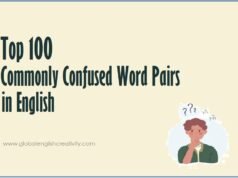English Language in France
France, a country renowned for its rich cultural heritage and linguistic pride, is witnessing a gradual transformation in its linguistic landscape with the growing prominence of the English language. Traditionally, French has been the dominant language in France, reflecting the nation’s identity and heritage.
However, in recent years, the use of English has been on the rise, permeating various aspects of French society, from education and business to media and entertainment. This article explores the evolving relationship between English and French in France and its implications for the country’s language policies and cultural identity.
Historical Perspective:
The French language has a deep-rooted history in France and has been a symbol of national unity for centuries. Efforts to preserve and promote French as the official language have been enshrined in legislation, notably the Toubon Law of 1994, which seeks to protect the French language from the encroachment of foreign words and ensure its predominance in various domains.
The Globalization Factor:
The increasing globalization of the world economy and the internet revolution have played a significant role in elevating the status of English in France. English is now the dominant language of international business, diplomacy, and technology. As a result, many French companies conduct their operations in English to better connect with global markets and stakeholders, giving rise to a bilingual business environment.
English in Education:
The influence of English in France is most evident in the education system. English has become a mandatory subject in schools, and its importance has grown over the years. Many universities offer courses taught in English, attracting international students and fostering a diverse academic environment. However, this trend has sparked debates about its impact on the French language and whether it might overshadow other languages, including regional dialects and minority languages.
The Media and Entertainment Industry:
The prevalence of English is evident in France’s media and entertainment landscape. International movies and TV shows, often in English, dominate cinema screens and television channels. Additionally, popular music and literature from English-speaking countries enjoy a massive following among French audiences, leading to an influx of English words and phrases into everyday conversations.
Tourism and Language Adaptation:
France being one of the top tourist destinations worldwide, the influx of visitors from various linguistic backgrounds has also contributed to the acceptance and adaptation of English. Many tourist areas, attractions, and hospitality services offer information and services in both French and English to cater to international visitors.
Preserving French Identity:
The rise of English in France has raised concerns among language purists who fear that the French language might lose its distinctiveness and cultural identity. This has prompted discussions on the need to strike a balance between promoting multilingualism and preserving the French language’s heritage.
Language Policy and Challenges:
The coexistence of French and English has posed challenges for policymakers in France. Striking the right balance between preserving French culture and embracing globalization is a delicate task. Authorities must carefully navigate language policies to protect French while recognizing the practicality of English in the modern world.
Conclusion:
The increasing prominence of English in France is a reflection of the country’s evolving position in the globalized world. While it presents opportunities for international engagement and economic growth, it also poses challenges to preserving the unique cultural identity associated with the French language. As France continues to find ways to embrace linguistic diversity while safeguarding its heritage, the relationship between English and French will remain a fascinating aspect to observe in the years to come.
also see:
| ENGLISH LANGUAGE IN CANADA |
| ENGLISH LANGUAGE IN SINGAPORE |
| ENGLISH LANGUAGE IN AUSTRALIA |
| BRITISH ENGLISH – AMERICAN ENGLISH |
| INDIAN ENGLISH – AMERICAN ENGLISH |
| USEFUL EXPRESSIONS IN ENGLISH SPEAKING |






































